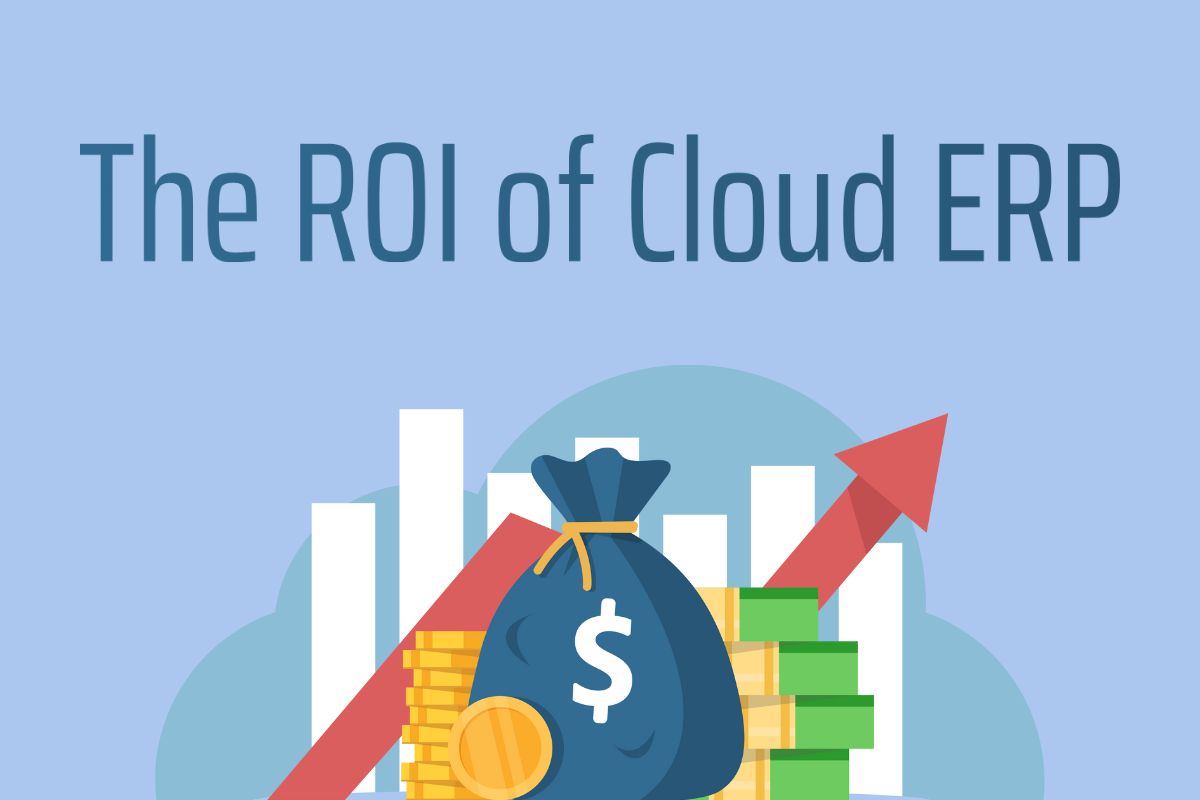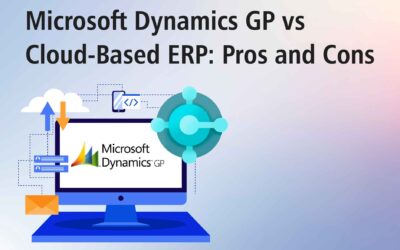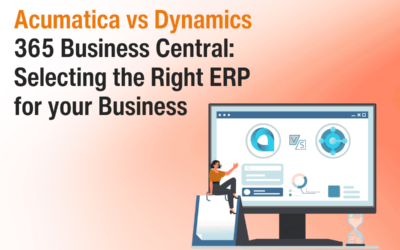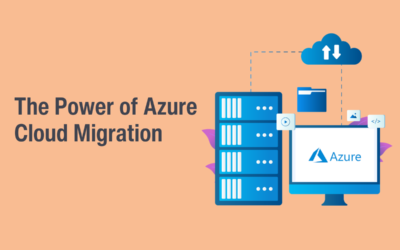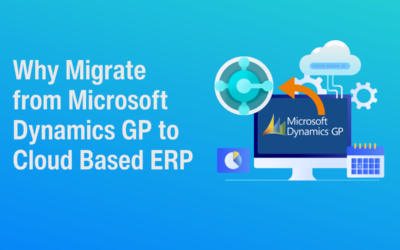As organisations strive to continually optimise their operations, streamline processes, and remain agile in the face of evolving market dynamics, the role of technology becomes increasingly pivotal.
Cloud ERP emerges as a transformative solution, promising unparalleled efficiency, scalability, and accessibility. However, navigating the realm of Cloud ERP and maximising its Return on Investment (ROI) demands more than just a cursory understanding.
In this blog post, we’ll delve into the intricacies of Cloud ERP, its benefits, challenges, and how to maximise Return on Investment (ROI) when implementing it.
Introduction to cloud ERP
Cloud ERP, or Enterprise Resource Planning, is a comprehensive software solution that integrates core business processes such as finance, HR, procurement, manufacturing, supply chain, and more into a unified platform. Unlike traditional on-premise ERP systems, Cloud ERP operates on cloud infrastructure, offering unparalleled flexibility, scalability, and accessibility.
Moving from On-premises deployments
Traditionally, businesses relied on on-premises ERP solutions, which required significant investment in hardware, maintenance, and IT infrastructure. However, with the advent of Cloud ERP, companies are transitioning to more flexible and cost-effective solutions hosted on remote servers.
Understanding ROI in Business
Return on Investment (ROI) is a crucial metric for evaluating the profitability and efficiency of business investments. When it comes to Cloud ERP, understanding ROI is essential to justify the adoption of cloud-based solutions.
Maximize Your ROI with Cloud ERP!
Unlock significant cost savings, enhance efficiency, and boost productivity with Cloud ERP solutions.
The benefits of Cloud ERP
- Cost efficiency: Cloud ERP eliminates the need for expensive hardware purchases and ongoing maintenance costs associated with on-premises solutions. With a subscription-based model, businesses can scale resources according to their needs, reducing upfront expenses.
- Scalability: Cloud ERP offers unparalleled scalability, allowing businesses to adjust resources and functionality as they grow. Whether it’s expanding operations or integrating new modules, cloud-based solutions provide the flexibility to adapt to changing business requirements.
- Accessibility: One of the key advantages of Cloud ERP is its accessibility from anywhere with an internet connection. Employees can access real-time data and collaborate seamlessly, regardless of their location, enhancing productivity and decision-making.
- Security: Contrary to common misconceptions, Cloud ERP offers robust security measures to protect sensitive business data. With advanced encryption, regular backups, and stringent access controls, cloud-based solutions often provide better security than on-premises systems.
Factors that influence ROI of Cloud ERP
Calculating ROI for Cloud ERP involves considering various factors that contribute to its effectiveness and efficiency:
- Implementation costs: While Cloud ERP may reduce upfront infrastructure costs, implementation expenses can vary depending on factors such as customisation, data migration, and training. Proper planning and budgeting are essential to optimise ROI during implementation.
- Time savings: Cloud ERP streamlines business processes, automates repetitive tasks, and reduces manual errors, resulting in significant time savings for employees. By reallocating resources to more strategic initiatives, businesses can maximise productivity and ROI.
- Improved productivity: With integrated workflows and real-time insights, Cloud ERP empowers employees to make faster, data-driven decisions, leading to increased productivity across the organisation. Improved collaboration and communication further enhance efficiency and performance.
- Enhanced decision making: Cloud ERP provides actionable insights through advanced analytics and reporting capabilities, enabling businesses to identify trends, mitigate risks, and capitalise on opportunities. Informed decision-making drives better outcomes and enhances overall ROI.
Transform with Cloud ERP
Experience significant ROI with Cloud ERP. Enhance your business efficiency and productivity.
Challenges in calculating ROI from Cloud ERP
Cloud ERP systems offer significant benefits, but quantifying ROI can be complex. Here are key challenges:
- Balancing Costs and Benefits: Estimating initial investment versus long-term gains is tricky, considering factors like subscription fees, implementation costs, and ongoing savings.
- Measuring Intangible Benefits: Benefits like process efficiency and improved decision-making are hard to quantify, making it challenging to demonstrate ROI in monetary terms.
- Data Migration and Integration: Migrating data and integrating systems can be daunting, with challenges such as data cleansing, mapping, and ensuring accuracy.
- Change Management and Training: Resistance to change and inadequate training can hinder user adoption, impacting the realisation of anticipated benefits.
- Monitoring and Improvement: Continuous monitoring and optimisation are essential for maximising ROI over time, requiring robust metrics and KPIs.
Why choose Dynamics 365 as your cloud ERP?
In analysing the results of Microsoft Dynamics 365 deployments, Nucleus found that for every dollar spent, companies attained an average of $16.97 in returns.
This is significantly higher than the average for both enterprise resource planning (ERP) and customer relationship management (CRM), which deliver, on average, $7.23 and $8.71 respectively.
Nucleus found that companies taking advantage of Microsoft’s investments in cloud and usability, as well as integration and analytics, were able to achieve significant returns by increasing productivity and revenues and reducing costs.
Maximising ROI when implementing Cloud ERP
To help maximise ROI when implementing Cloud ERP, businesses should:
- Set Clear Objectives: Define specific goals and objectives aligned with your business priorities to guide the implementation process.
- Invest in Training: Provide comprehensive training and support to ensure employees can effectively adopt the new system and maximise its potential.
- Regularly Evaluate Performance: Continuously monitor key performance indicators (KPIs) and metrics to assess the impact of Cloud ERP on business outcomes.
- Partner with Experts: Collaborate with experienced vendors and consultants (such as Mercurius IT) who understand the unique challenges and opportunities associated with Cloud ERP implementations.
Get started with cloud ERP
In conclusion, Cloud ERP offers numerous benefits, including cost efficiency, scalability, accessibility, and security, but realising its full potential requires careful planning, implementation, and optimisation.
By understanding the factors that influence ROI and implementing best practices, businesses can harness the power of Cloud ERP to drive growth, innovation, and success.
If you want to implement cloud ERP in your organisation or discover how it can benefit your operations, please contact us today to explore the possibilities.

